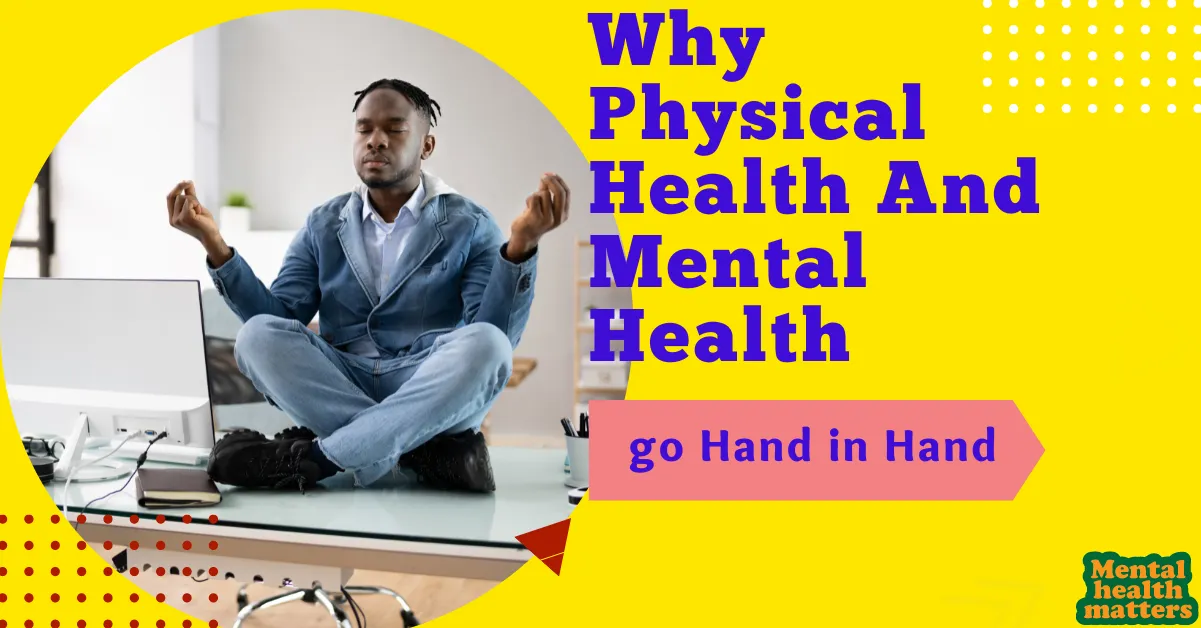- The Connection Between Exercise and Mental Health
- What Happens Inside Our Brain When We Exercise
Understanding the connection between physical and mental health is essential because they go hand in hand.
Are you concerned about the effect of stress on your body? Do you worry about your mental well-being? If yes, then you must read this post. In it, we discuss the effects of both physical and mental illness. Mental illness refers to our emotional status.
Physical illness means our general physical conditions. Both these factors affect our lives significantly. Both physical and mental illnesses can cause severe problems for an individual. But if treated early enough, they can lead to complete recovery.
- The Connection Between Exercise and Mental Health
- What Happens Inside Our Brain When We Exercise
- The Connection Between Exercise and Mental Health
- What Happens Inside Our Brain When We Exercise
As technology continues to take up more space in our daily routines, we’re becoming increasingly stressed out and depressed. A recent study by the University of Göttingen, Germany, found that the more frequently we used laptops and smartphones, the worse off we were physically and mentally.
We must understand the connection between mental and physical health, from biological to social. However, what is most important is that we take action to improve our overall well-being. Therefore, it is essential that we actively seek out ways to improve our physical health. One of the best things we could do for ourselves is engage in regular physical activity.
The Connection Between Exercise and Mental Health
It has been shown that regular physical activity decreases anxiety and depression, improves symptoms of low self-confidence and social isolation, and increases blood flow to the brain. This helps improve communication between the hypothalamic pituitary adrenal (HPA) system and the parts of the brain that control mood and behavior.
What Happens Inside Our Brain When We Exercise
When we begin exercising, our brain perceives it as a stressful event that causes our brain to produce a chemical called BDNF (Brain-Derived Neurotrophic Factor), which helps our brain cells grow more robust and protects them from damage. At the same time, our brain produces an enzyme called Endorphin, which counteracts the feeling of pain and increases our mood.
Your body produces endorphins after a workout, which makes you feel good. These endorphins help you cope with stress better.
Exercise And Psychotherapy
Mental illness affects millions of people around the world each year, and although there are various treatments available, many people do not get the care they need.
People who suffer from mental illnesses are less likely to receive regular checkups to ensure that they stay healthy. They are also less likely to be offered help improving their lifestyle habits, such as reducing drinking or changing their diets.
However, both physical and mental aspects of our lives are equally important, so if you’re concerned about someone’s mental state, take steps to address their physical well-being, too.
Prioritizing Physical Activity
Studies show that physical activity has both physical and mental benefits. It improves our health by releasing feel-good chemicals into the body, which helps us relax and reduces stress levels. Research indicates that regular physical activity increases our self-esteem and sense of happiness.
5 Reasons Why Fitness and Mental Health Go Hand in Hand
The connection between fitness and mental health is profound, with numerous studies demonstrating the multifaceted benefits of regular physical activity on our psychological well-being. Here are five compelling reasons why fitness and mental health are intrinsically linked, each supported by scientific evidence and practical insights.
1. Exercise Helps Us Cope with Stress
One of the most immediate benefits of exercise is its ability to help us manage stress. Physical activity lowers our levels of cortisol, the hormone associated with stress. High cortisol levels can lead to various health issues, including anxiety and depression. Regular exercise, such as walking or jogging, has effectively decreased feelings of stress. For instance, studies have indicated that even a brief 30-minute walk can significantly reduce anxiety and improve mood.
2. Cardiovascular Exercise and Cognitive Function
Cardiovascular exercises like running, swimming, or cycling are crucial in enhancing cognitive function. These activities promote the formation of new neurons, a process known as neurogenesis, which occurs in the hippocampus – the brain area responsible for memory and learning. Additionally, engaging in weightlifting not only strengthens muscles but also boosts brain health. Building muscle strength through weightlifting has improved self-esteem and cognitive function.
3. Protection Against Degenerative Diseases
Starting an exercise regimen early in life, around 25, can significantly impact long-term brain health. Regular physical activity increases the levels of neurotrophic factors, which are essential for maintaining the health and function of neurons. These factors improve the functioning of nerve cells and may even slow down the progression of neurodegenerative disorders such as Alzheimer’s disease. By keeping neurons healthy and robust, exercise protects against cognitive decline.
4. Prevention of Cognitive Declines
Exercise is vital for preventing cognitive declines that often accompany aging. It promotes the creation of new cells in the hippocampus, enhancing memory and learning capabilities.
Activities like running sprints have been shown to improve vocabulary retention, demonstrating the direct impact of physical fitness on cognitive performance. By maintaining an active lifestyle, individuals can preserve their cognitive functions well into adulthood.
5. Improved Sleep and Relaxation
Another significant benefit of regular exercise is its ability to improve sleep quality. Exercise increases relaxation levels, making it an effective remedy for those struggling with sleeping disorders.
Physical activity helps reset circadian rhythms, particularly beneficial for individuals experiencing insomnia. Furthermore, improved sleep patterns contribute to better overall mental health, reducing symptoms of anxiety and depression.
The Holistic Impact of Fitness on Mental Health
In addition to these five key reasons, it’s essential to consider the holistic impact of fitness on mental health. Regular physical activity fosters a sense of accomplishment and boosts self-esteem.
When individuals set and achieve fitness goals, they experience a sense of purpose and empowerment, which can positively affect their mental well-being.
Moreover, exercise releases endorphins, often called “feel-good” hormones, which naturally elevate mood and reduce pain perception.
Practical Tips for Integrating Exercise into Daily Life
To reap the mental health benefits of exercise, it’s crucial to integrate physical activity into your daily routine. Here are some practical tips to help you get started:
Set Realistic Goals: Begin with achievable fitness goals that match your current fitness level. Gradually increase the intensity and duration of your workouts.
Choose Enjoyable Activities: Choose exercises like dancing, hiking, or playing a sport. Enjoyable activities are more likely to become regular habits.
Create a Schedule: Allocate specific times for exercise in your daily routine. Consistency is vital to experiencing the long-term benefits of physical activity.
Incorporate Social Elements: Exercise with friends or join a fitness class. Social interactions during physical activity can enhance motivation and make workouts more enjoyable.
Listen to Your Body: Pay attention to your body’s signals and avoid overexertion. Rest and recovery are essential components of a successful fitness regimen.
Conclusion
Fitness and mental health are deeply interconnected, with regular physical activity offering numerous psychological benefits. From reducing stress and anxiety to enhancing cognitive function and preventing degenerative diseases, exercise plays a vital role in maintaining and improving mental health. By incorporating regular physical activity into your lifestyle, you can enjoy a healthier, happier, and more balanced life.
Focusing on these aspects, we can better understand and appreciate fitness’s profound impact on mental health, motivating more individuals to adopt an active and healthy lifestyle.
Source & Credits:
https://www.femalefirst.co.uk/health/seven-reasons-why-fitness-and-mental-health-go-hand-in-hand-1229069.html
https://medium.com/live-your-life-on-purpose/how-mental-health-and-physical-health-go-hand-in-hand-can-help-you-live-a-better-life-383022b8444


I suggest to you the title “How Fitness and Mental Health Fuel Each Other for Optimal Well-being”
I’ve definitely noticed a correlation between my mental health and physical well-being. When I’m feeling stressed or anxious, it’s harder to take care of my body.
This is such an important reminder! My fitness journey totally transformed my mental health. If you’ve been on the fence, definitely check out this link – it’s a game-changer.
Couldn’t agree more! Fitness isn’t just about physical gains, it’s a powerful tool for managing stress and anxiety. Thanks for sharing this valuable resource! What’s one positive change fitness brought to your mental well-being?